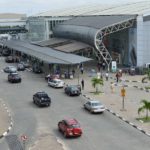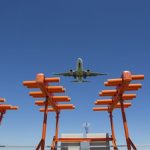
The greatest threat to airport security is the conspiracy of insiders who always breach security for personal reasons. This writer says that with revelations in the Kano airport drug trafficking ring, Nigeria may not be insulated from this dangerous threat.
Investigations into the crash of Metrojet Flight 9268, which exploded shortly after take-off from Sham El Sheik International Airport in Egypt on October 31, 2015, had shown that bomb was planted in the cargo hold of the aircraft by aviation handling personnel at the airport.
The flight was operated by an Airbus A321, which was destroyed by the bomb, killing all the 224 persons onboard.
Writing about the crash a year later in Newsweek magazine, an aviation analyst had said the bomb was “tucked between two suitcases in the (cargo) hold. Russian investigators believe it was placed there during loading by a baggage handler who was loyal to an Egyptian offshoot of the Syria-based Islamic State militant group (ISIS).”
In other words, an aviation worker sympathising with the ISIS cause planted the bomb in the cargo hold of the aircraft.
The magazine further noted, “The Metrojet attack raises questions about not only Egyptian security but about a key vulnerability of all airports: the risk not from passengers but from airport staff. If investigators are right and militants did use sympathetic ground staff to smuggle the bomb on board Metrojet Flight 9268, then that might not be just a Egyptian or Sharm el-Sheikh problem; it could be a global problem.”
Newsweek quoted Philip Baum, author of Violence in the Skies: A History of Aircraft Hijacking and Bombing, who said, “We are not screening people who work in restricted areas properly—that is definitely one of [aviation’s] Achilles’ heels. All recent terror attacks have bypassed conventional passenger screening entirely.”
The above revelation throws light on the danger of air travel when the security system at the airports is perforated by insider threat.
The report of the National Drug Law Enforcement Agency (NDLEA) on the activities of drug trafficking syndicate at the Mallam Aminu Kano International Airport, Kano, reflects the insider threat incident in the Metrojet bombing.
Similarities
The bomb was planted by a staff of a handling company, just as the Kano airport drug syndicate is made up of airport workers who implicated Zainab with prohibited drug that would have cost her life in Saudi Arabia if not for Nigeria’s diplomatic intervention.
NDLEA revealed that Idris Umar Shehu, Sanni Suleiman, Nuhu Adamu, Rhoda Adetunji, Udosen Itoro Henry and Sanni Hamisu. The cartel had allegedly planted the tramadol-bearing luggage on Zainab’s tag. All these were aviation workers. One is a staff of an airline handling company, three were clearing agents, and two others were staff of Security Company, so they all work at the airport.
NDLEA also disclosed, “In May, 2017, some officials of airline handling company colluded with a passenger to ferry narcotic drugs ephedrine and used their official pass to take the drug to the tarmac where it was loaded to the airplane.
Implication
Since these airport workers obviously aid drug traffickers, any of them could be tempted to aid terrorist group that may be willing to pay or they believe in their cause. In whichever way, the security of the airport is going to be breached.
Industry stakeholder and CEO of Centurion Securities, Group Captain John Ojikutu, noted that there is high level of insider threat in the nation’s airports and such could have tragic consequences for Nigeria.
“What has happened in Kano has shown that there is high level of insiders’ threat and not only in Kano but at most of our airports. They are among the airport staff, airlines staff, ground services and allied staff. Note that there were seven arrests were made in the case of the cartel in Kano, but only six names were mentioned and only Rhoda has employer: the employers of the others are not known. So long there is a cover up on the others employers, there are rooms for insiders’ threats.
“It is generally not known if background checks are sufficiently done on the airport staff: what I often hear that is done on them after their recruitment are security checks by the police which are not adequate as background checks.
“So if we have high number of Nigerians arrested outside the country on outbound journey, it is either our security defense layers for outbound passengers are faulty or they are compromised by the insiders’ threats. Check this out; the NDLEA seems to be more active on inbound arrests than outbound, why?
“In other words, why do we hear more of inbound arrest than outbound arrest or why do airports outside country arrest more outbound Nigerians than we do? There is compromise among staff of all airport agencies including the airlines,” Ojikutu said.

Reinforced Security
The General Manager, Corporate Affairs, Federal Airports Authority of Nigeria (FAAN), Mrs. Henrietta Yakubu, told THISDAY that since the report of the Zainab incident at the Kano airport, the agency has carried out strategic security reinforcement at the airport and other airports under its management in order to forestall similar incident from happening.
“Our Managing Director, Mr. Saleh Dunoma has visited the Mallam Aminu Kano International Airport about three times to preside over security reinforcement at the place.
“We have improved the screening of the airport. Cameras have been put all over the place to monitor every human activity. We are also fixing X-ray machines both at the entrance and at the exit before the passenger goes to board his flight,” she said.
The General Manager also disclosed that FAAN and the federal government have adopted a new security system, called security without borders, whereby every security operative from the Nigeria Immigration Service, Nigerian Customs, NDLEA, State Security Service and Aviation Security would have the power to arrest any passenger suspected to have contravened the rules of engagement or is seen to be with prohibited items, including drugs.
Securing Luggage
Yakubu advised travelers to monitor their luggage until it is taken into the conveyor belt for check-in. She said passengers should take picture of the tag on their bags, record the weight so that if there were any bag added to it, the picture would show the actual luggage the passenger checked in.
She also advised travelers to go to the airport and check in by themselves instead of using proxies so that unscrupulous people would not take advantage of any loophole such may cause.
“Take the picture of the weight of your bag and your tag. Many Nigerians travelling usually have lower baggage weight because people travel with empty bags to buy things and bring back, but henceforth Nigerian should be more careful. Buy your tickets, check in your luggage so that you will be sure of what is in your bag”, she advised.
Background Check
Yakubu said FAAN has started conducting background checks on all the personnel that work at the airports to ensure that they are clean and that anyone suspected to be compromised would be thrown out of the airport. She added that a Presidential Committee on security at the airports has blocked all the loopholes that previously existed.
Great Challenge
To a former Managing Director of the Federal Airports Authority of Nigeria (FAAN), Richard Aisuebeogun, insider threat remains a great challenge to airport security because terrorists could use money to secure insider collaborator or through religious or political belief.
THISDAY investigations showed that some security operatives pay to be posted to the major airports and allegedly settle their superiors that they would be retained to continue to work at such airports. It is the same with other organisations that work at the airports, including handling companies, clearing agents and others.
“This is because there is always something to be done that can earn you money at the major airports and when some security operatives personnel are transferred out of the airport, they found their way back,” said some airport workers that spoke to THISDAY.
Handling Companies
When security breaches happen at the airports, handling companies are rarely the focus but their personnel play significant roles in passenger and cargo facilitation at the airports.
They also have not highly skilled manpower that could be used to penetrate the critical and restricted areas of the airport. A handling company official told THISDAY that some of the baggage handlers could easily be wooed to compromise security with financial inducement because of their young age and the level of education of most of them.
“So we pay so much attention on them to ensure they don’t breach security. We don’t hesitate to sack anyone that breaches our rules. That is why new workers are regularly engaged and it is not easy getting them On Duty Cards (ODC), the official said.
However, the Managing Director of Skyway Aviation Handling Company Plc (SAHCO), Mr. Basil Agboarumi, advised airline and aviation handling companies should monitor their employees and ensure that they do the right things and if any one’s behavior casts doubt on the sincerity of his duties, the person should be shown the door out.
 “Everybody employed in a company knows the rules, but a staff can sabotage the rules for his own benefits. For example, we put our staff that we employ and post to various airports to the same processes and procedures.
“Everybody employed in a company knows the rules, but a staff can sabotage the rules for his own benefits. For example, we put our staff that we employ and post to various airports to the same processes and procedures.
“We profile them and before they will be given On Duty Card (ODC) that allows them to go to the restricted areas of the airport by the Federal Airports Authority of Nigeria (FAAN), they are further scrutinized by the agency,” Agnoarumi said.
He said workers at the airport, from airline staff, security agencies, handling companies and airport management personnel need to cooperate to fight against crimes at the airports.
“In our company if we suspect you, we investigate you and if you are found wanting we boot you out. You cannot be too sure of anybody, but if we suspect you, we send you out. So I advise that there should be cooperation among the companies and workers at the airport,” he said.
With concerted efforts from FAAN, the federal government and with the introduction of the new system, security without borders, it is believed that the authorities would stamp out criminal elements from the nation’s airports.






